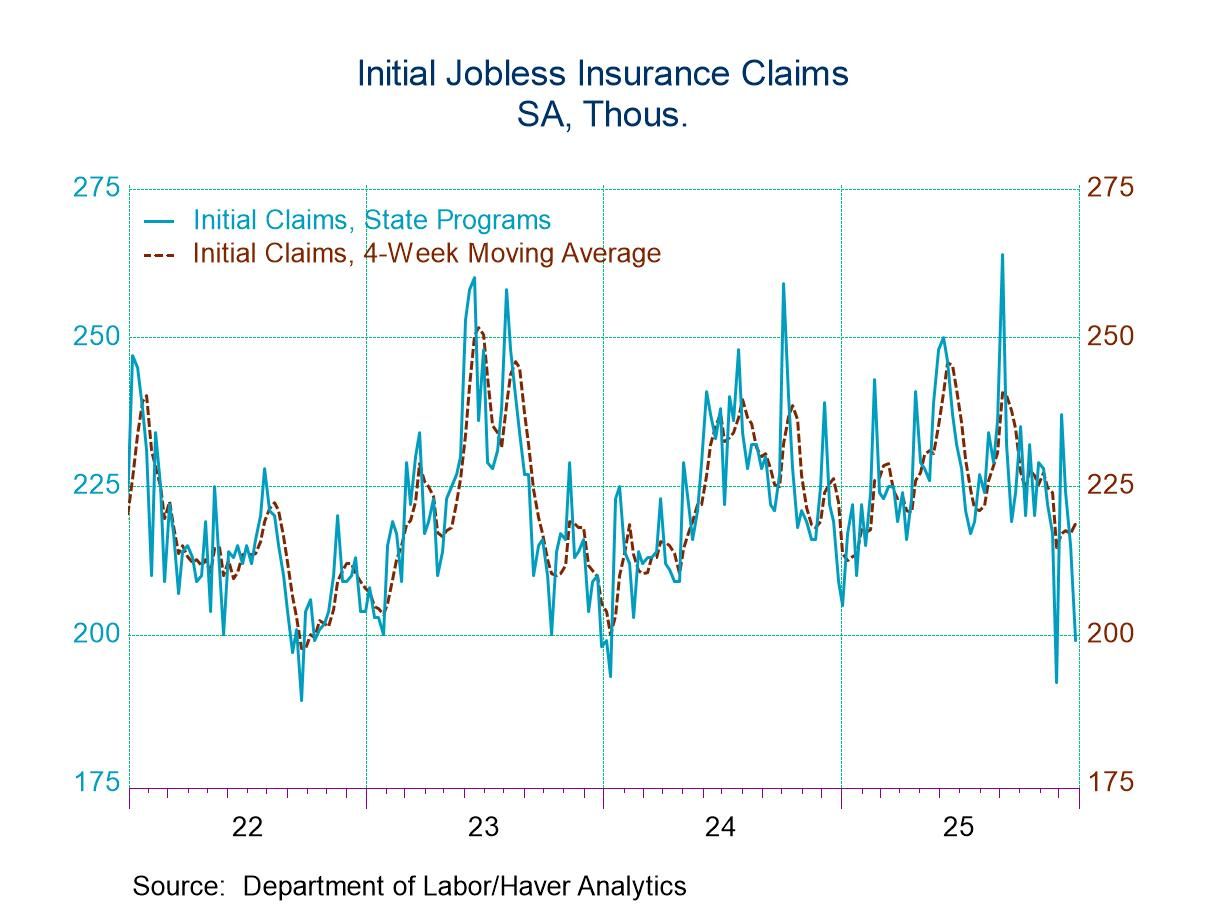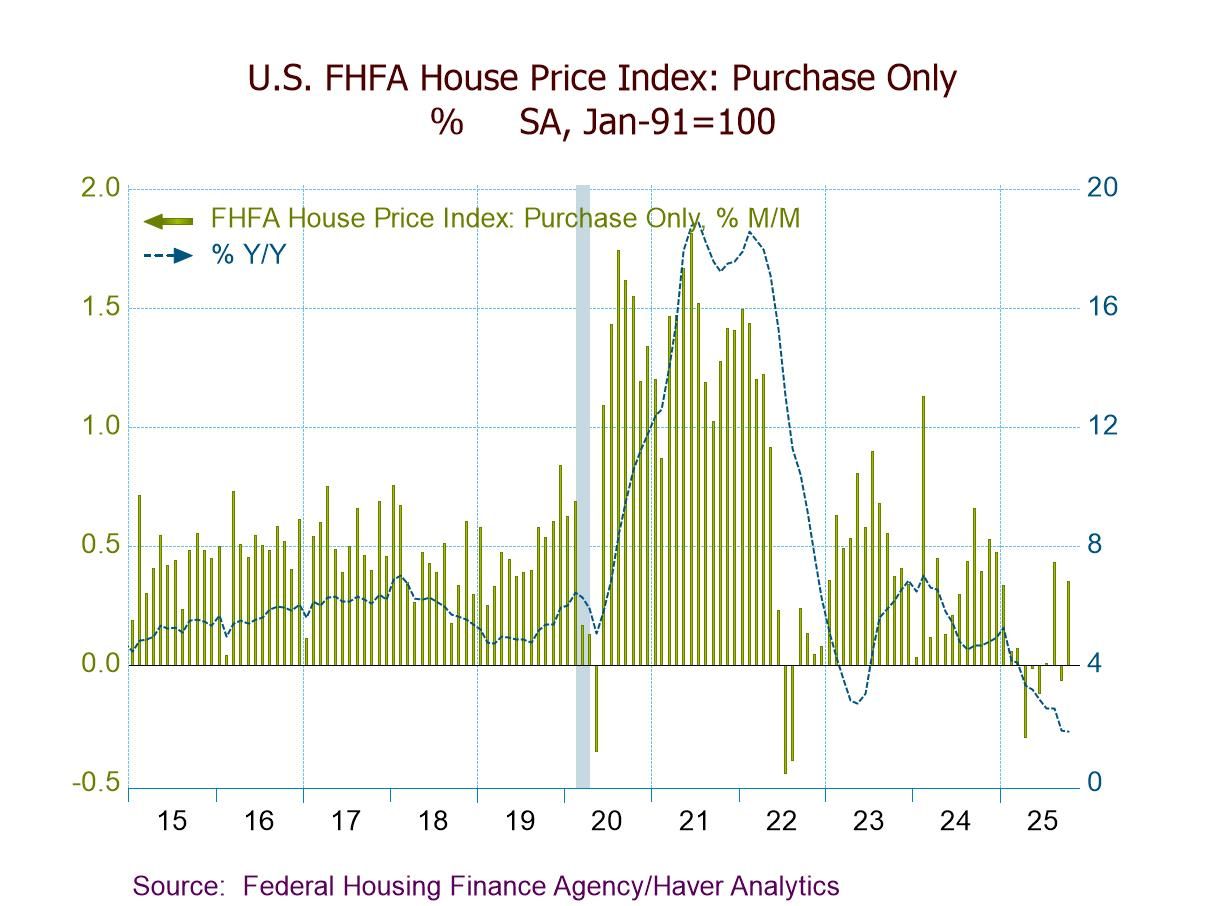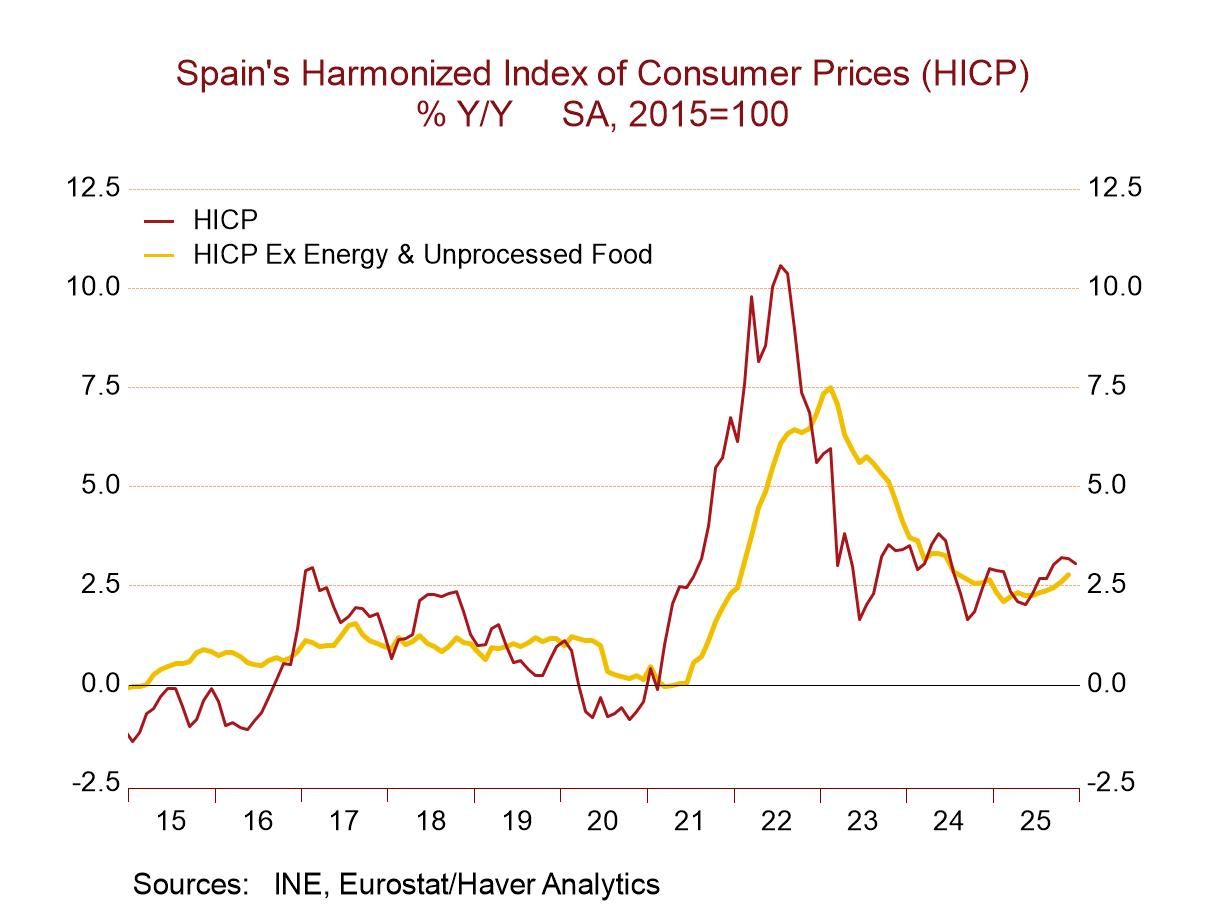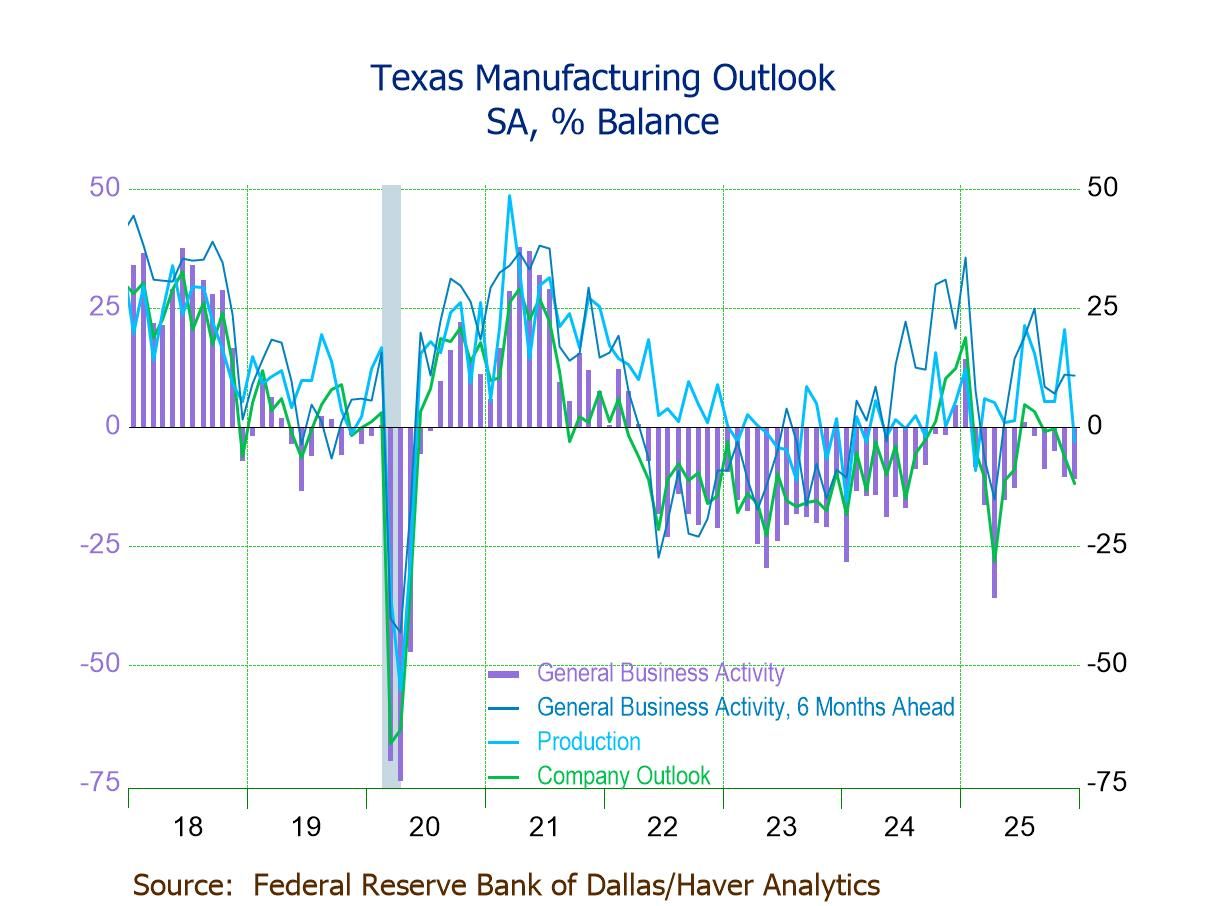 Global| Jan 17 2002
Global| Jan 17 2002Housing Starts Down Due to Drop in Multifamily
by:Tom Moeller
|in:Economy in Brief
Summary
Housing starts fell more than expected last month despite moderate weather. November starts were revised down mostly because of a lowered estimate of single-family building. The decline in the total was due to a sharp 26.5% decline [...]
Housing starts fell more than expected last month despite moderate weather. November starts were revised down mostly because of a lowered estimate of single-family building.
The decline in the total was due to a sharp 26.5% decline multifamily starts which had surged in November.
Single-family starts rose, again benefiting from unseasonably mild winter weather. It was the highest level for single-family starts since April.
By region, starts fell across the country except the West.
Yields on conventional 30-year mortgages jumped to 7.07% last month.
Building permits rose 3.6% to the highest level since February.
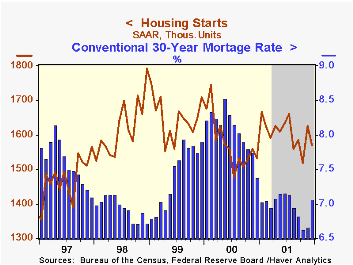 |
| · Housing starts fell more than expected last month despite moderate weather. November starts were revised down mostly because of a lowered estimate of single-family building. · The decline in the total was due to a sharp 26.5% decline multifamily starts which had surged in November. · Single-family starts rose, again benefiting from unseasonably mild winter weather. It was the highest level for single-family starts since April. · By region, starts fell across the country except the West. · Yields on conventional 30-year mortgages jumped to 7.07% last month. · Building permits rose 3.6% to the highest level since February. |
|---|
| Housing Starts (000s, AR) | Dec '01 | Nov '01 | Y/Y | 2001 | 2000 | 1999 |
|---|---|---|---|---|---|---|
| Total | 1,570 | 1,625 | 2.5% | 1,606 | 1,575 | 1,647 |
| Single Family | 1,293 | 1,248 | 4.6% | 1,275 | 1,233 | 1,306 |
| Multi Family | 277 | 377 | -6.4% | 331 | 342 | 341 |
by Tom Moeller January 17, 2002
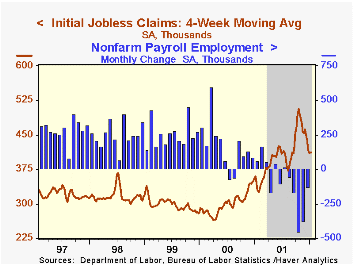
Initial claims for unemployment insurance fell in the latest week. They had been expected to bounce up after the sharp decline the prior week which was revised up slightly.
Though weekly claims fell, the four-week moving average remained above the 400,000 level which (because rehiring lags) is roughly the cutoff point for either rising or falling payroll employment.
The weekly claims figure is for the survey week for January payroll employment and they are roughly equal to the December level.
Continuing claims for unemployment insurance dropped another 1.0% and the prior week's level was revised lower.
The insured rate of unemployment was unchanged at 2.7%.
| Unemployment Insurance (000s) | 01/12/02 | 01/05/02 | Y/Y | 2001 | 2000 | 1999 |
|---|---|---|---|---|---|---|
| Initial Claims | 384.0 | 398.0 | 28.0% | 408.0 | 302.8 | 297.7 |
| Continuing Claims | -- | 3,470 | 49.3% | 3,031 | 2,127 | 2,187 |
by Tom Moeller January 17, 2002
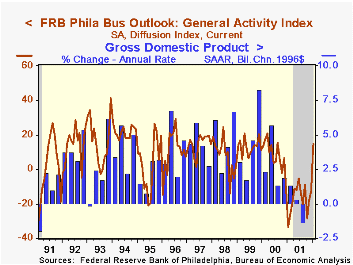
The Philadelphia Fed’s index of general business conditions entered positive territory for the first time since 2000. A level of -2.5 had been expected. Prior figures were revised down.
New orders and shipments turned positive while inventories remained sharply negative.
The business conditions index reflects a separate survey question, not the components.
Inflation pressure rose slightly for the third month in a row, but prices continued to decline.
| Philadelphia Fed Business Outlook | Jan '02 | Dec '01 | Y/Y | 2001 | 2000 | 1999 |
|---|---|---|---|---|---|---|
| General Activity Index | 14.7 | -12.6 | -33.6 | -17.3 | 8.2 | 13.3 |
| Prices Paid Index | -11.6 | -18.4 | 15.8 | -1.0 | 27.1 | .8 |
Tom Moeller
AuthorMore in Author Profile »Prior to joining Haver Analytics in 2000, Mr. Moeller worked as the Economist at Chancellor Capital Management from 1985 to 1999. There, he developed comprehensive economic forecasts and interpreted economic data for equity and fixed income portfolio managers. Also at Chancellor, Mr. Moeller worked as an equity analyst and was responsible for researching and rating companies in the economically sensitive automobile and housing industries for investment in Chancellor’s equity portfolio. Prior to joining Chancellor, Mr. Moeller was an Economist at Citibank from 1979 to 1984. He also analyzed pricing behavior in the metals industry for the Council on Wage and Price Stability in Washington, D.C. In 1999, Mr. Moeller received the award for most accurate forecast from the Forecasters' Club of New York. From 1990 to 1992 he was President of the New York Association for Business Economists. Mr. Moeller earned an M.B.A. in Finance from Fordham University, where he graduated in 1987. He holds a Bachelor of Arts in Economics from George Washington University.



